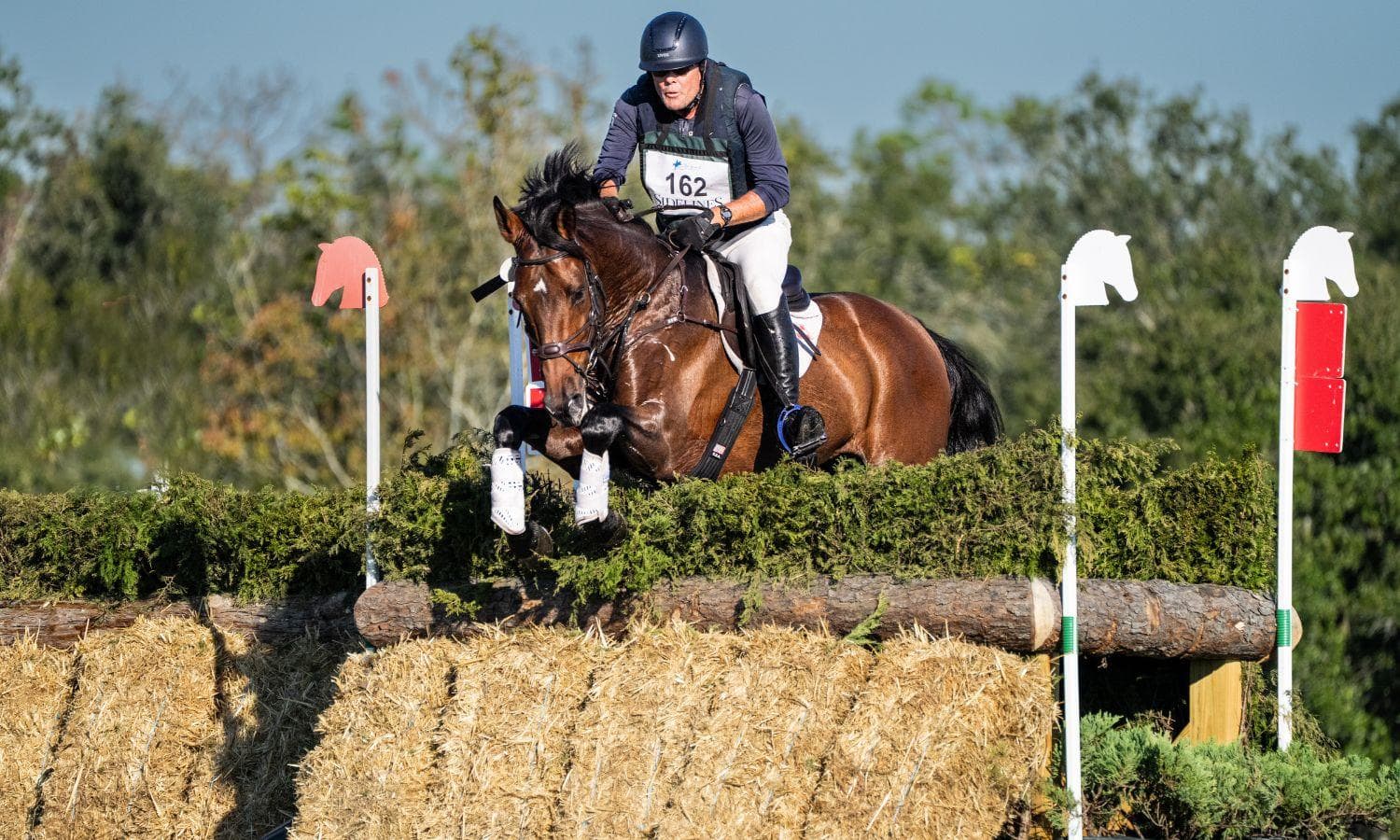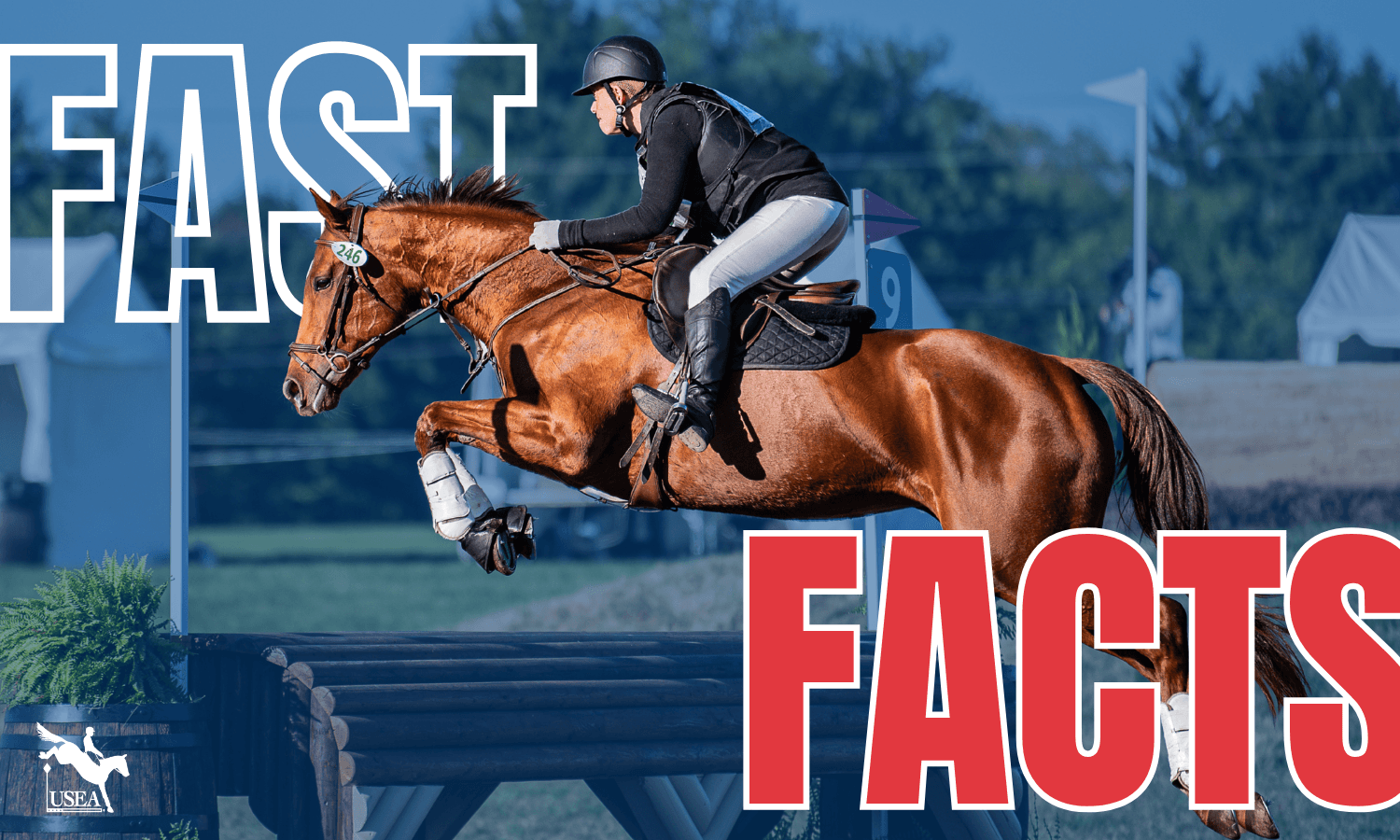Tamie Smith’s Approaches to Training and Competition

Mother, grandmother, and winning 5* eventing rider—these three titles don’t typically go together. However, Tamie Smith is all of the above.
Based in Temecula, Calif., out of her Next Level Eventing barn, Tamie became the first American rider in 15 years to win the Kentucky Three-Day Event CCI 5* when she claimed victory aboard Mai Baum. Held the last weekend in April every year, the Kentucky 5* represents the highest level of eventing, with only seven 5* competitions held per year in the entire world.
She accomplished this feat aboard her long-time partner, a then-18-year-old German Sport Horse gelding named Mai Baum, owned by Ellen Ahearn, Eric Markell, and their daughter, Alex Ahearn. Tamie was also the first woman since 2011 to win this internationally prestigious event.
Horse Illustrated sat down with Tamie to learn more about what keeps her motivated, her training methods, and her outlook on the eventing industry.
On Managing Goals
Tamie says that she initially planned to also take Dutch Warmblood gelding Elliot V to the 5* at Kentucky in 2023—the division that Mai Baum ended up winning. She felt he was on track to meet that goal, but in their last preparatory competition, she decided to rethink her game plan, since he didn’t feel quite ready.
“I’ve learned throughout the years that you can never keep a goal set in stone,” she says. “The slow way is always the fast way, and you only get one good shot at doing this at the top level. I’ve learned that if it doesn’t seem ideal—if I’m going into a 5* and don’t feel like I’ve done absolutely everything I possibly could to prepare for it, or any competition for that matter—I typically err on the side of caution.”
She moves her horses up the levels at the rate she feels is best by staying true to her morals and trusting her program.
“I have a pretty solid opinion about what I think horses are ready to do [and] when,” Tamie says. “I don’t feel like taking a 5-year-old Preliminary [3'7"] is appropriate. I have had 5-year-olds that are probably ready—they’re bored at Training level [3'3"]—but I don’t feel like it’s always in the best interest of their overall development and their minds, and to me it always ends up catching up [to you], so I try to keep things more on a conservative basis.”
On Fitness and Conditioning
“Going into a top five star, I would be galloping typically every four to five days," Tamie says. "We have wonderful mountains in our area, so I have access to probably the best gallop that I've been able to find in the whole country.”
She explains that having hilly terrain is paramount to being able to get her horses’ heart rates up, especially the non-Thoroughbred horses. The steep inclines test the horses’ hearts and lungs without putting unnecessary wear and tear on them.
For the horses at the lower levels, Tamie does a lot of pole and cavaletti work to get their heart rates up. This works on their rideability, while also improving their endurance.
Once a week, Tamie aims to take her horses for a trot-hack, which she finds extremely beneficial.
“We have all kinds of different types of footing, like a river bed, hard-packed road, uneven slopes, and whatnot," she says. "I take the horses out and just play and just get them through all the different types of footing. I think that that's really important for their bones and their tendons and ligaments.”
As far as recovery for the horses coming off of big events, Tamie always gives them ample time off.
“For instance, Mai Baum came home after Kentucky and got three weeks in a field of doing nothing," she says. "I try to leave them out there to just be horses and let their legs and bodies recoup. During those three weeks, we would go over him to make sure that there's been no new injuries or anything that might have popped up after a competition—typically if you're going to have some sort of small injury, it might show up a few weeks after.”
For all of Tamie horses, she tries to give the whole month of November and into the start of December off. The older horses go on hacks to keep muscle and fitness intact, and all of the horses are checked on. Otherwise, they get a chance to just be horses and enjoy some time off.
On Education
“I’m a big supporter of going to [college],” says Tamie. “I think it’s super important. I know that there are a lot of top riders that don’t believe it’s necessary, so my answer might be a bit controversial. Education is super important for learning how to communicate, navigate through life, and deal with conflict.”
She says that her formal education has helped her navigate relationships with her horses’ owners and all of the different personalities she meets.
“[My education has] enabled me to learn how to communicate and to understand what it’s like in the real world, and working in corporate America,” she says.
Before turning to horses as her full-time profession, Tamie worked in the intake department of a mental health facility.
“I have always been intrigued by mental health,” she shares. “My original plan was to get my degree in psychology.”
However, a mentor encouraged Tamie to pursue other avenues toward her goal of helping people when the flaws of the healthcare system began to wear on her.
Initially, she was a little “bummed about that, because I thought if I went down that avenue [I could] help people navigate through their trials and tribulations.”
Tamie decided that she would strive to help people in other ways, no matter what career path she went down. Now, as a professional rider and coach, Tamie says that her time working in mental health has given her a unique perspective.
“It gave me a different perspective as far as learning what works for different types of people when I’m coaching,” she says. “I bring in an old-school approach where I think it’s very important to be empathetic to your horses. I mean, they don’t choose to do what we ask them to do. They do it because they love us. They love the sport as well, but they would be fine and happy to be eating grass in a field, too.”
Tamie doesn’t have a lot of tolerance for impatient riders.
“That’s something that all of us have to learn as we grow in the sport,” she says. “It can be frustrating, especially where we have to master three different disciplines. You have to treat your horse with respect, the way you would want to be treated.”
From a competitive standpoint, Tamie adds that the mental element is almost more important than physical talent, and that a lot of counseling goes into producing good riders and horses.
Clearly her background has been perfect preparation for reaching the top of her sport. It takes nerves of steel to put the pressure aside and perform at your best at a 5* event like Kentucky, but Tamie has shown the world she is more than capable.
This article originally appeared in Horse Illustrated magazine. If you are a USEA member, visit horseillustrated.com/usea to claim your special subscription offers to both Horse Illustrated and Young Rider magazines.
For more Tamie Smith content from Horse Illustrated, check out their “Next Level” series with Tamie Smith here. Plus, enjoy Tamie’s episode of Horse Illustrated’s Webinar Series here.















